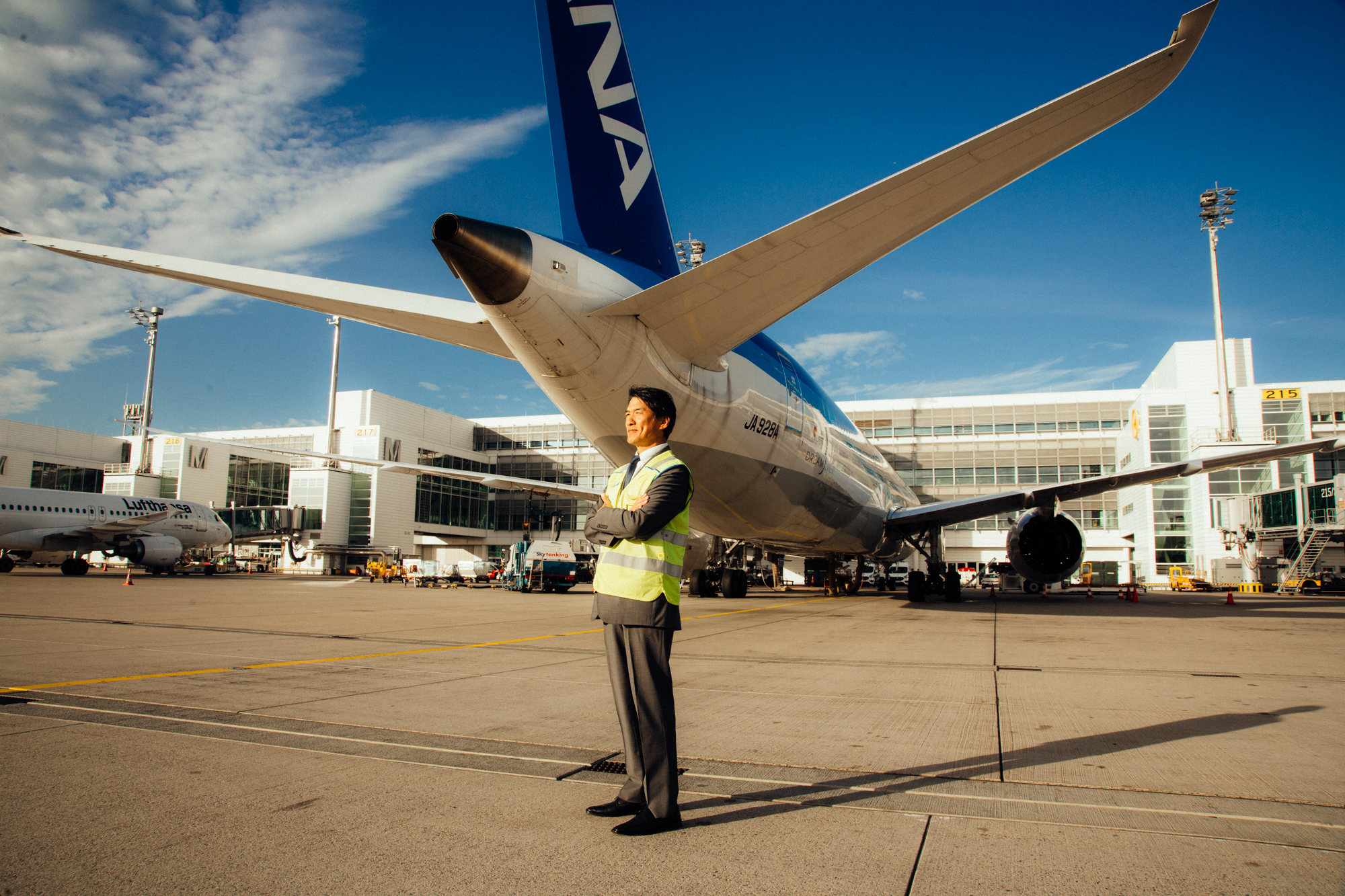Long-term readers of J-BIG will not be surprised to learn that our publisher and editor in chief Bjoern Eichstaedt has a deep interest in everything related to the Japanese business world. But not everyone might be aware that his fascination with the Land of the Rising Sun goes way back – both in his professional and private life. In a change of pace, the interviewer becomes the interviewee for this issue of J-BIG. In a conversation with Eiki Hayashi, the Germany correspondent of the Japanese business daily Nikkei (Nihon Keizai Shimbun) who agreed to become the guest interviewer for this special issue, Bjoern Eichstaedt talks about the birth of his love for Japan, the Japan business of communications agency Storymaker that he is co-running and co-owning as Managing Partner, and the beginnings of J-BIG.
Eiki Hayashi: Tell us a little bit about Storymaker. What is your current business and where does the company come from?
Bjoern Eichstaedt: Storymaker is a communications agency with a focus on story and topic development, PR, digital communication and content creation. The agency was founded in 2001 by German technology and business journalist Heidrun Haug. In the 1990s, entrepreneurs from companies she had interviewed were starting to ask her if she could help them set up their PR activity. From her role as a journalist, she knew that when a company sent out a press release or information about new products, one thing was often missing: the story. There were usually a lot of facts about new product features or sales numbers, but little to no insight into the company as a whole. At the same time, her conversations with high-level entrepreneurs from the Silicon Valley clearly showed that, almost always, there was an interesting story to tell: A reason why the company existed, or a bold vision for the future, which was not reflected in the company’s communication at the time. So she said to herself: The most important thing for companies to communicate is their story – and I’m going to help them do it. That is when Storymaker was born.
In the beginning, the company was purely a PR agency based on Heidi’s background in journalism. Talking to journalists, organising press conferences, that sort of thing. Over time, however, it developed into a more general communications agency. We started writing blog contents and became active in the social media field. We also began producing videos and other multimedia content based on the company story: Employee or customer magazines, Power Point presentations – whatever format or touchpoint made sense for the company to tell their story.
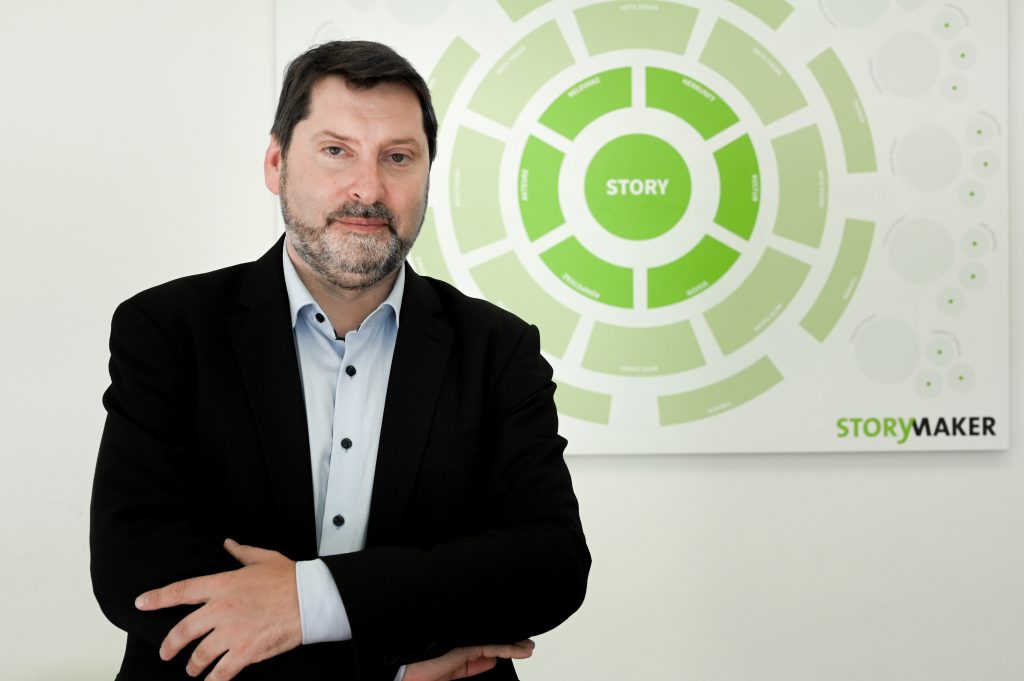
Eiki Hayashi: What kinds of companies did you focus on?
Bjoern Eichstaedt: The agency was founded in the late nineties, so Storymaker started operating during the so-called “New Economy”, the rise of many of the new internet companies. All of our initial clients were therefore German or American IT companies. But then came the burst of the “dot.com bubble” in the early 2000s, which affected many of our clients, as well. In addition, we had found it increasingly difficult to expand our client base because of non-compete agreements: If we had a client who was very good at Customer Relationship Management (CRM), for example, we could not take another client from this field that was essentially their competition. So we decided to expand our focus to other technology-related segments. Storymaker was founded in a city called Tuebingen, a university town in the state of Baden-Wuerttemberg, where a lot of German machinery and engineering companies are located. This was our first area of expansion, along with some ventures into the automotive field. Today, we are covering almost everything that falls under a broad definition of “technology”. IT, engineering, machinery, consumer electronics, automotive, and automation and robotics are our main fields of experience, industry-wise.
Along with this expansion into new industries, we also further broadened the scope of the services we offer. In essence, we help companies to create their story. We develop topics and formats for communication together, from text or graphics to photography and video production. I would say that we still show our journalistic heritage when it comes to finding a story and the right topics. But at the same time, we have grown into something like a media production company. One exception is advertising, which we do very rarely and would not consider part of our core expertise. We always come from the story and try to convince our clients to create compelling content rather than just buying advertising space. And finally, we also entered East Asia in 2007, when we opened a representative office in Beijing, China, to help a German client of ours in our first China project. This activity has turned into a very successful China business for Storymaker that today is run by my colleague Theresa Stewart.
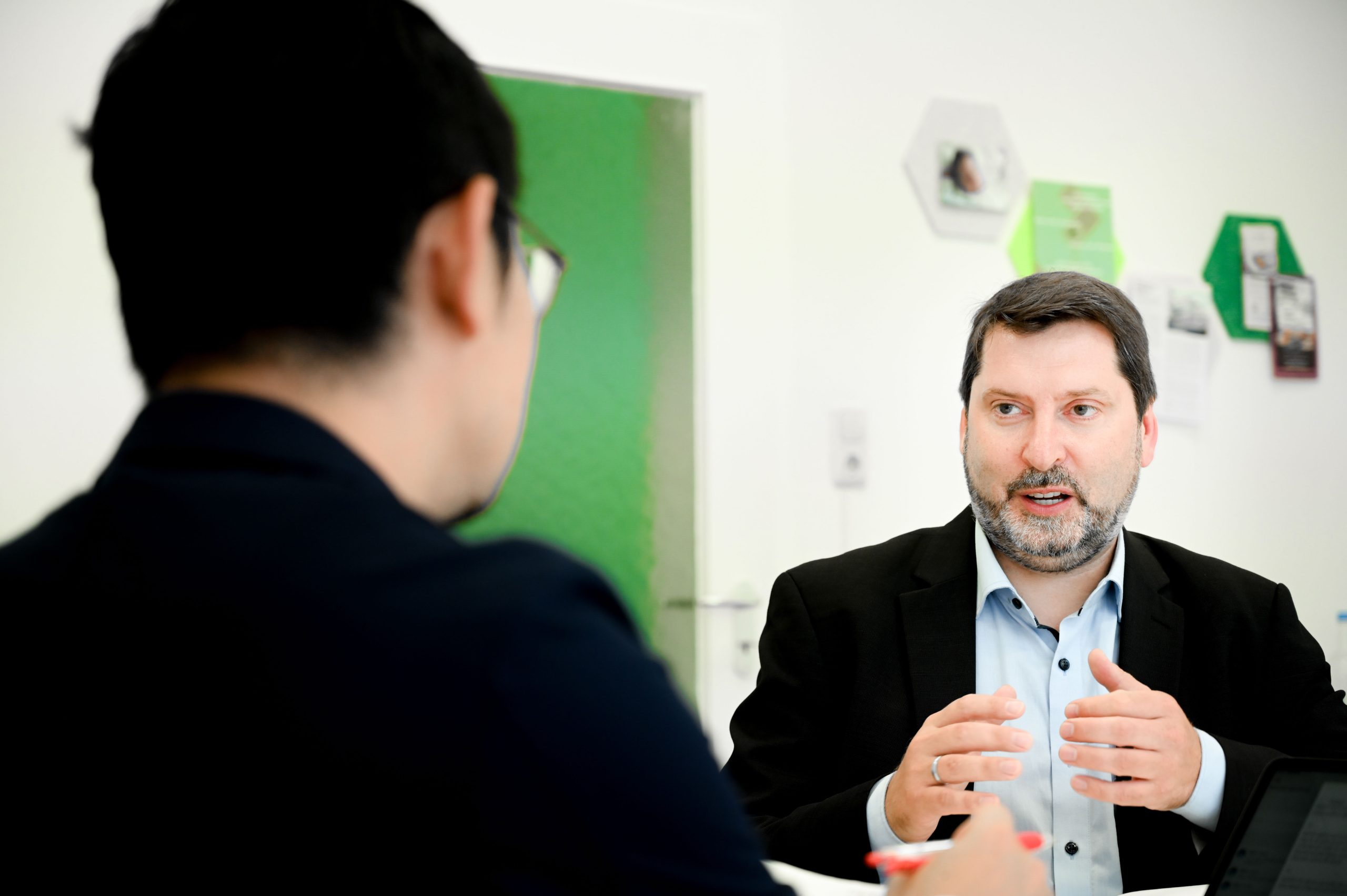
Eiki Hayashi: What is your own role at the company and when did you join Storymaker?
Bjoern Eichstaedt: Today, I am a co-owner of the company and am co-running it as one of three Managing Partners, but originally, I started out as Storymaker’s first trainee. The company was only a few weeks old when I finished university in Tuebingen and started working there. I think I must have been the fourth or fifth employee to join. I was developing relatively quickly in the company, and after some years, I became a deputy managing director. Then I took over a small share and later became the co-CEO and a larger shareholder in the company.
Eiki Hayashi: You are now also responsible for Storymaker’s increasing business with Japanese companies. How did this Japan focus come about?
Bjoern Eichstaedt: In my private life, I had been interested in and fascinated by Japan for a very long time. I watched my first Japanese anime on TV when I was about four years old, although I didn’t know at the time that ‘Heidi’ or ‘Maya the Bee’ were Japanese in any way. But more importantly, I’m also a first-generation Nintendo Kid – I got the first edition of the European version of Nintendo’s Famicom console in 1987. At the time, I was 12 years old and the first one at my school to own a Nintendo Entertainment System. I became a big fan of Super Mario and The Legend of Zelda. Through the first German magazine that solely focussed on video games, which was called Power Play, I started to notice that all of these wonderful video games were coming from Japan. Nintendo, Sega, the PC Engine: all Japanese. That was the first time I became aware of Japan as a country of technology and innovation.
During my university days, I also became really interested in Japanese cinema. It started with J-horror like “Ringu” or “Ju-On”, but over the years, I watched hundreds of Japanese movies – not least thanks to the Nippon Connection Film Festival, which started in Frankfurt in 2001 and today is the biggest Japanese film festival in the world. From the second year onwards, I have been a loyal visitor. I learned a lot about Japanese culture and society from these movies, so they were a big factor in my deepening infatuation with Japan.
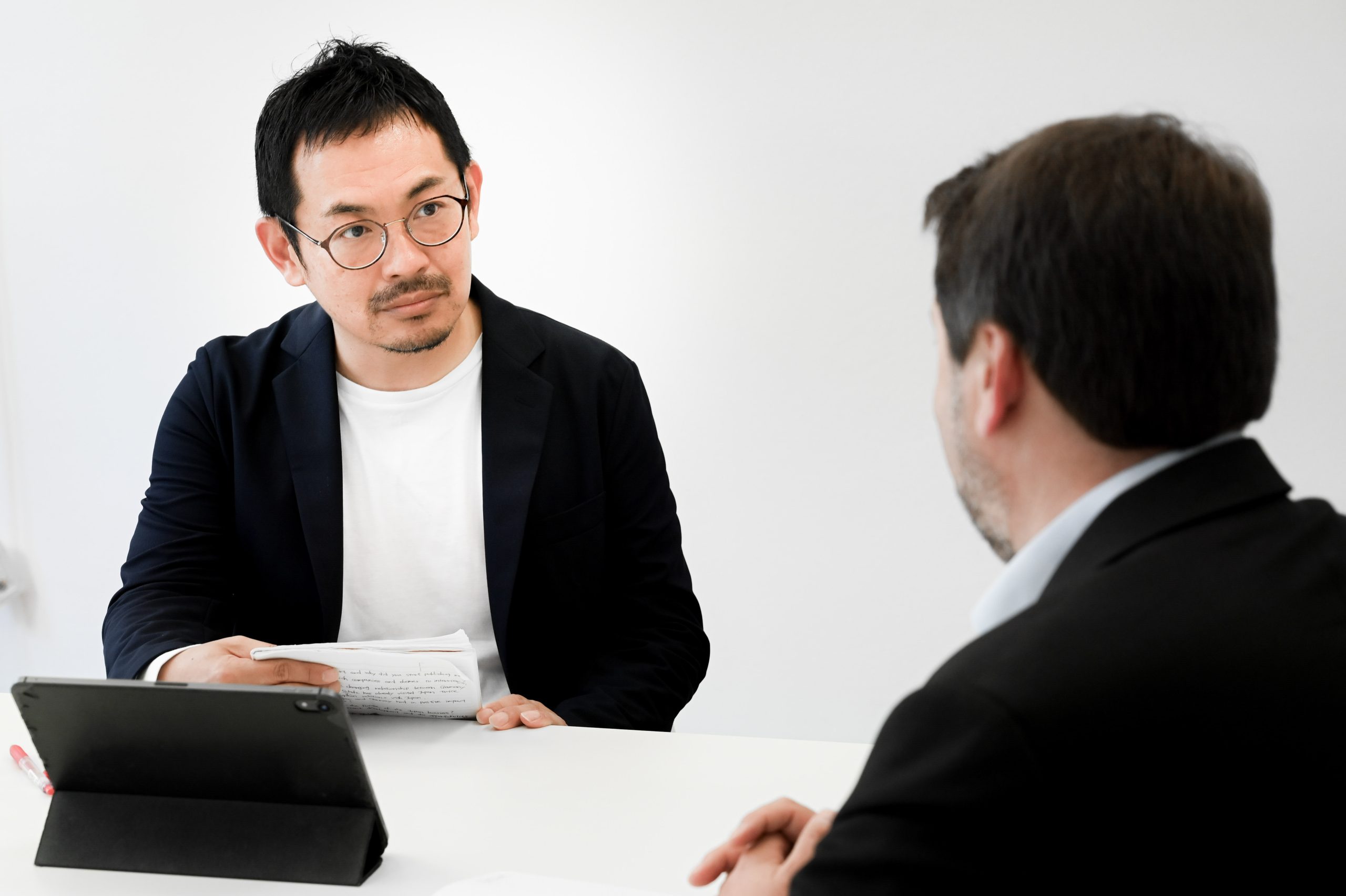
Eiki Hayashi: But there was at this point no professional connection to Japan – through university or work?
Bjoern Eichstaedt: No, I had studied neurobiology, and my obsession with Japan was purely confined to my private life. I had also never been to Japan at this point. In the 2000s, the Yen was very high, so travelling to Japan was quite expensive – too expensive for a graduate who just started his first full-time job as a trainee. It was only in 2010, when I got married, that I first set foot on Japanese soil. My wife was also interested in the country, and we decided that, instead of having a big wedding party with everyone we knew, we would invest that money in a three-week honeymoon to Japan. I can honestly say that this trip changed my life. I loved everything about it, and just nine months later, we went to Japan again. After two or three years, we had probably been to Japan five times on private trips, and each one just made me want to go again.
At the same time, I increasingly saw a connection to what we were doing at Storymaker, namely the topic of technology. With each trip, I noticed more and more Japanese technology companies that offered great products but were not very visible in Europe. I was reading a lot of business and technology media, and rarely did I see something about a Japanese company. That’s when I started thinking about how I might combine my private interest in Japan with my work. Maybe my love for Japan could help me make Japanese companies more visible in Germany and Europe? In 2012, I decided to give it try. I reached out to Japanese companies and offered to help them in their communication work.
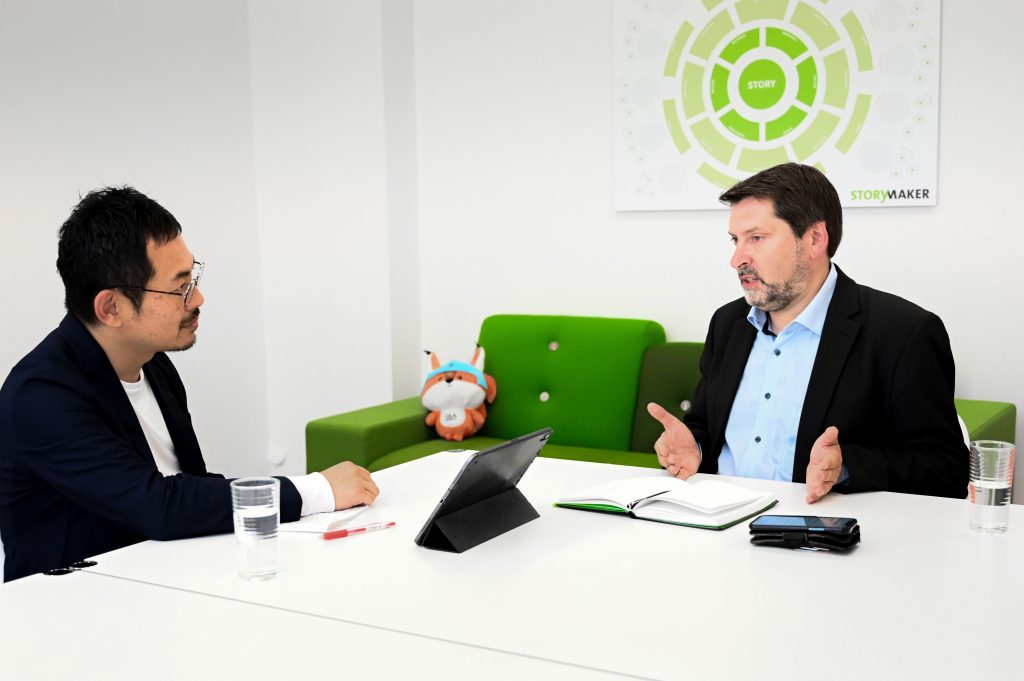
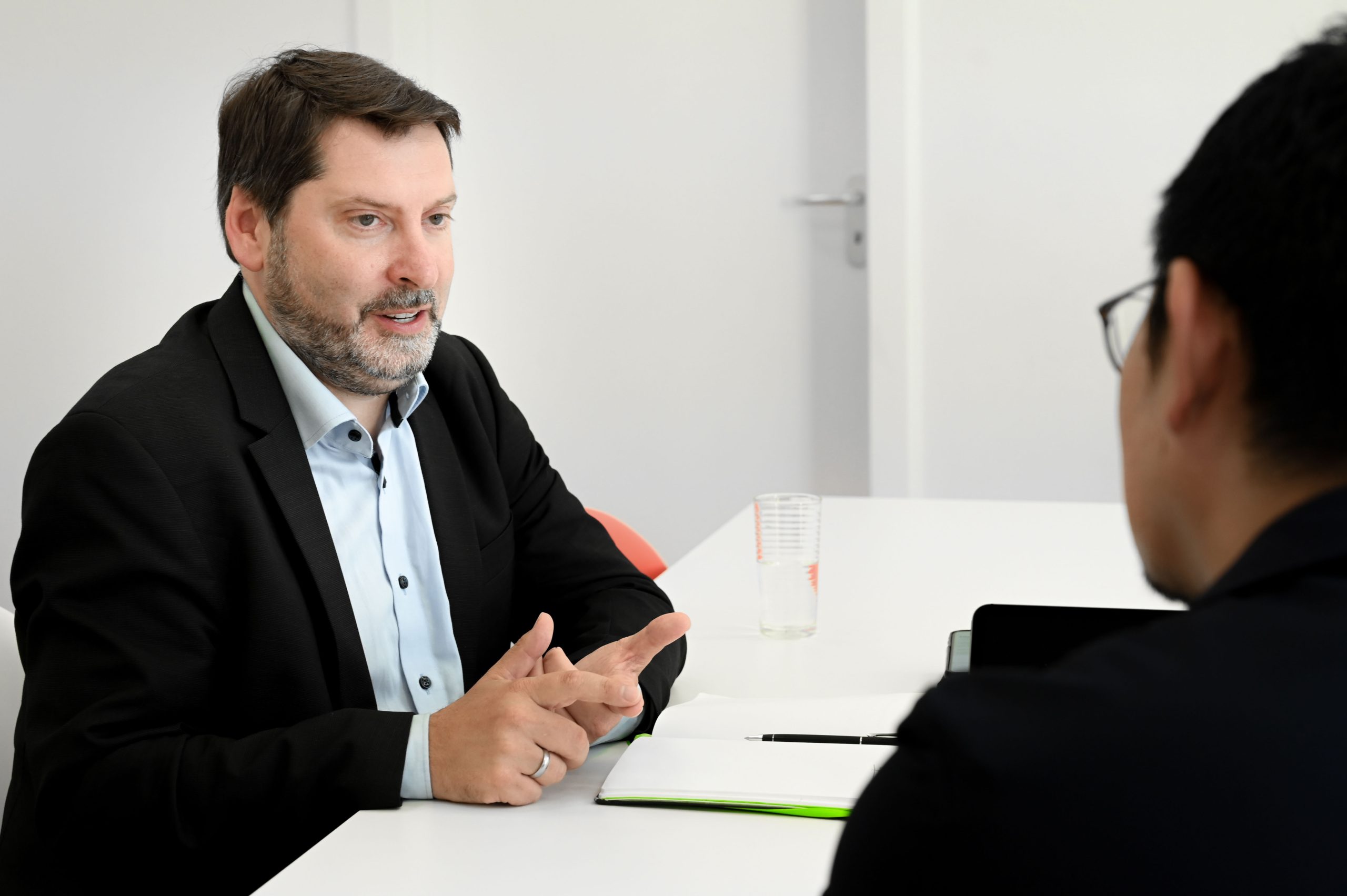
Eiki Hayashi: Why do you think so many Japanese companies were flying under the radar in Germany and Europe?
Bjoern Eichstaedt: There are a number of different reasons, and it is also important to note that this was not always the case. In the 1970s and 1980s, Japanese companies had been a lot more visible in Europe and in the US – so visible, in fact, that the West was starting to get a little scared of Japan. I have an old copy of the famous German SPIEGEL magazine from the early 1980s in my archive which features a Japanese car on the cover. The car is grinning menacingly and there is an implication that Japanese carmakers will kill the German automotive industry. In the US, Sony was buying up established entertainment companies like Columbia. All of this generated a massive pushback against Japan’s perceived rise to dominance, and that was one factor why companies might have dialled back their communication. Later, countries like Korea and China started to become more important players, and our European media diverted their attention to these Asian countries, while Japan faded more into the background. Thirdly, after the burst of the Japanese bubble in the early 1990s, many Japanese companies were refocusing on the Japanese market. And last but not least, I think Japanese culture and customs also play a decisive role here. In my experience, the Japanese don’t like to boast about themselves. They want to convince potential customers through their products, through quality – not through shouting the loudest.
As a result of all of this, I assume communication towards foreign media came to a standstill after the 1990s. This was essentially confirmed by a survey we did together with JETRO in 2014 among German journalists. We asked them to name Japanese companies that they knew, and all of the names that were mentioned already existed in the 1980s. Nobody seemed aware of important upcoming companies like SoftBank or Rakuten.
Eiki Hayashi: How were you hoping to change that?
Bjoern Eichstaedt: In the beginning, I was incredibly naive. I wanted to talk to these Japanese companies and their decision makers about this situation, but I didn’t know anybody working there. I didn’t have a German-Japanese network in place, or any track record. I don’t even speak Japanese! Anyone might have told me that I was on a fool’s errand, but I just started talking to people wherever I could. I asked people I knew if they had any contacts at a Japanese company. I went to tradeshows and started talking to Japanese companies at the booth. Any opportunity I got, I tried to get into contact with the Japanese community in Germany. And then I remembered that, years before, we had put a client of ours, SCHOTT Glass which was also the company related to our China expansion, in contact with a Japanese agency to help them develop their media presence there. I contacted the agency out of the blue and they put me in touch with a satellite employee working in Munich. That was my first meaningful contact in the Japanese business world, and we keep in touch to this day. I told him about my plans, and, to be honest, he was very sceptical. He told me that Japanese companies were barely interested in doing PR abroad. And while he agreed with me that this was not the right way to go, he warned me that it would be very difficult to change their minds. But I was somehow undeterred, and we continued to meet regularly.
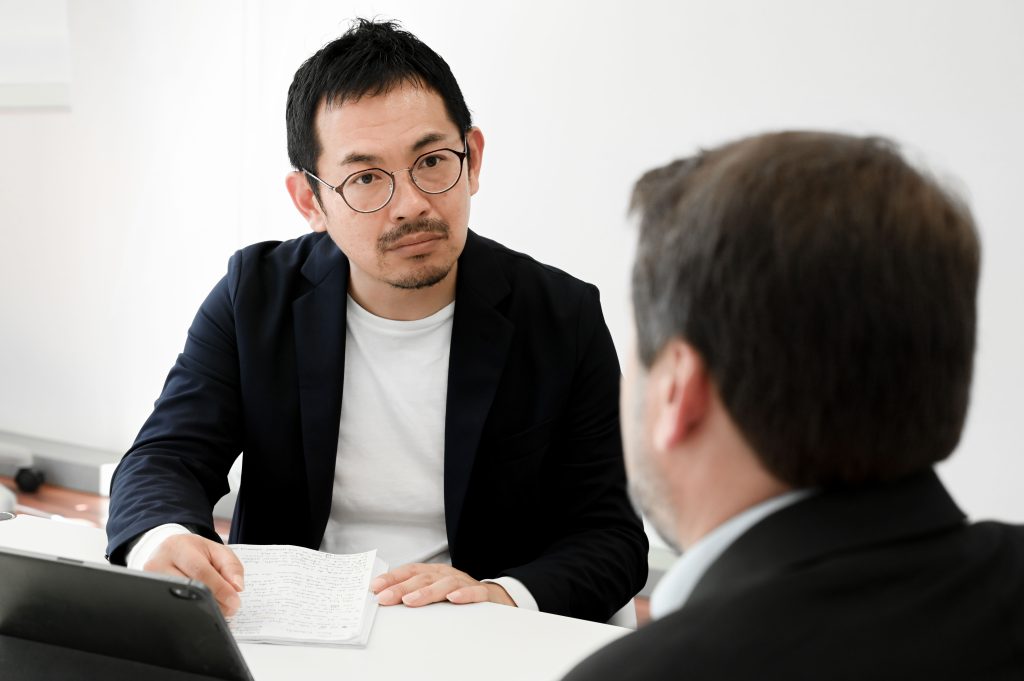
In late 2012, he informed me that there might finally be a project that I could work on – with a Japanese sanitary company called TOTO, the company behind the famous high-tech toilet “washlet”. They had a collaboration with German sanitary company Villeroy & Boch at the time and wanted to organise a press conference at the ISH tradeshow in Frankfurt. That became Storymaker’s first Japan-related project. Later that same year followed a project with Panasonic in the telephone field.
Eiki Hayashi: How would you describe your first experiences working with Japanese companies in Germany? Was there anything that stood out to you?
Bjoern Eichstaedt: Both projects were a success, but I thought that there was also still a lot of untapped potential. I felt that there was a lot of miscommunication between the local subsidiaries and Japan headquarters, and that I needed more experience with the Japanese side to understand them better. So in July 2013, I went on my first business trip to Japan. The goal was mostly to talk to people and to learn as much as possible. I wanted to understand how tradeshows work in Japan, how they do PR differently, how they view the European market. On this first trip, I only had a handful of meetings and was learning very little indeed. But even so, it was helpful. From then onwards, I decided to go to Japan for one week every three months – and I have stuck to that schedule until the start of COVID. I first started going back last year in May, and since then, I’ve already been to Japan again five times.

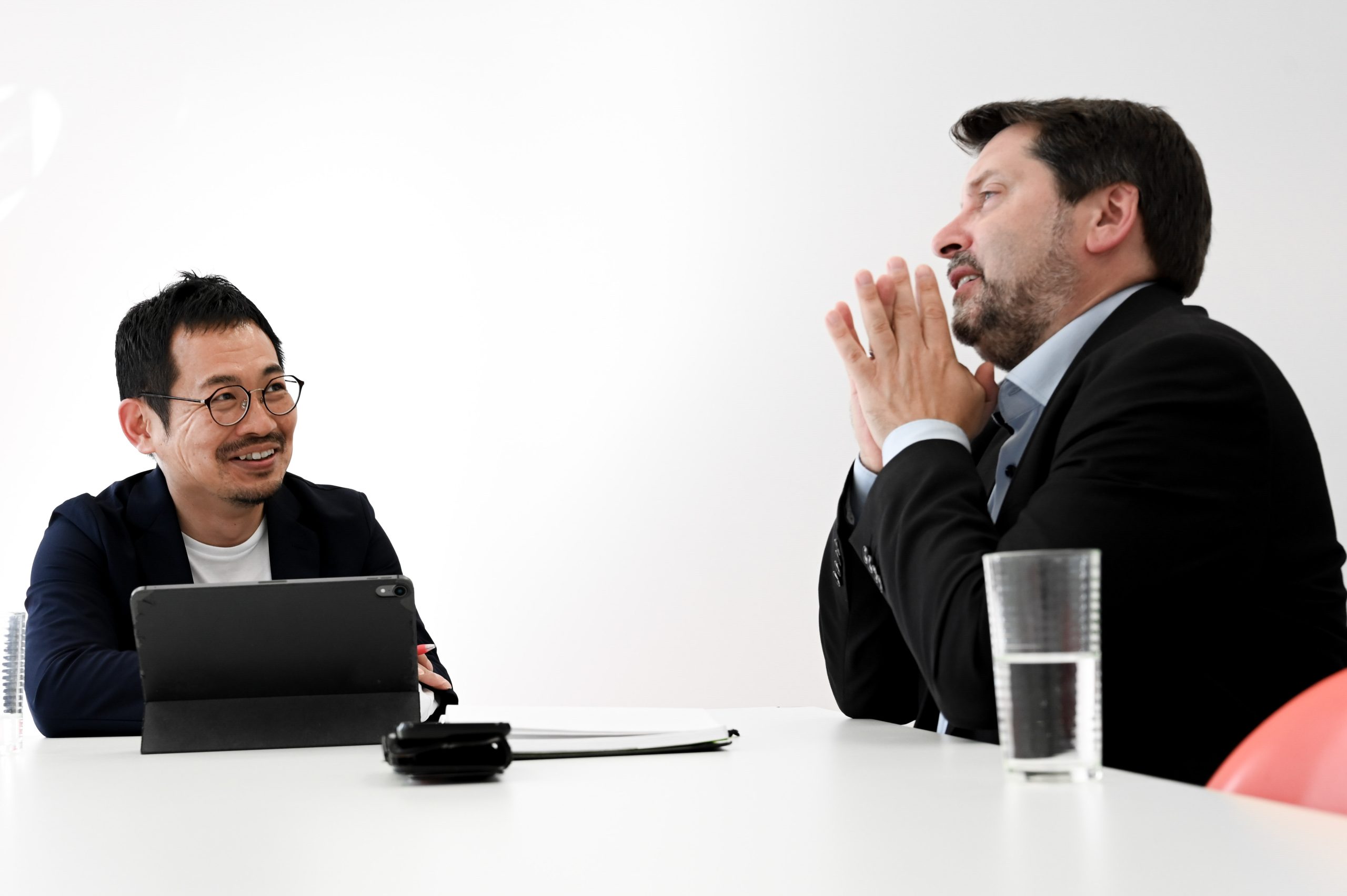
Eiki Hayashi: That sounds like a nice success story – were there any challenges you faced on the way?
Bjoern Eichstaedt: Certainly. Up until now, we have worked for almost 40 Japanese companies, with a growing number of clients that we work for on a permanent basis. But it took very long to get there, and it wasn’t always smooth sailing. One hurdle became very clear when I won our first Japanese client in Japan. This was in 2014, and the company was a garden tree export business. While the entrepreneur could speak English very well, most of his employees only spoke Japanese – and I didn’t. There was a lot of misunderstanding and a lot of difficulty. Perhaps unsurprisingly, this was the first project that was not at all successful. In fact, I would consider it a big failure. But it led me to an important conclusion: I couldn’t do this on my own inside Storymaker. At the very least, I needed someone on board who could speak Japanese. And so Storymaker got its first Japanese employee in 2015. That was another important building block for our success.
I also have to add that building up the Japan business was only possible because Storymaker had other business with German, American, British, and French companies and a growing business in China as well. As you know, working with Japanese companies takes a lot of relationship and trust building, and that takes time. If I hadn’t had the support of the agency founder, and other clients to sustain the business, we would not have a strong Japanese business today.
Eiki Hayashi: What role does the business with Japanese companies play at Storymaker today?
Bjoern Eichstaedt: It varies a little bit, but in the last two or three years, our Japan business has accounted for between 15 and 20 percent of our total revenue. It has been a growing business segment for some time now and, perhaps even more importantly for us, a very stable one. Even during the first year of COVID, when business was going down in a lot of other sectors, or Japan business remained more or less unchanged. I think this had a lot to do with the Japanese emphasis on continuity. Japanese companies didn’t fire employees during this time, and they also didn’t drop their agencies and other service partners. It might take long to build a relationship with a Japanese company, but once it is established, that relationship is strong and can withstand even difficult times. This was a very eye-opening and positive experience for me.
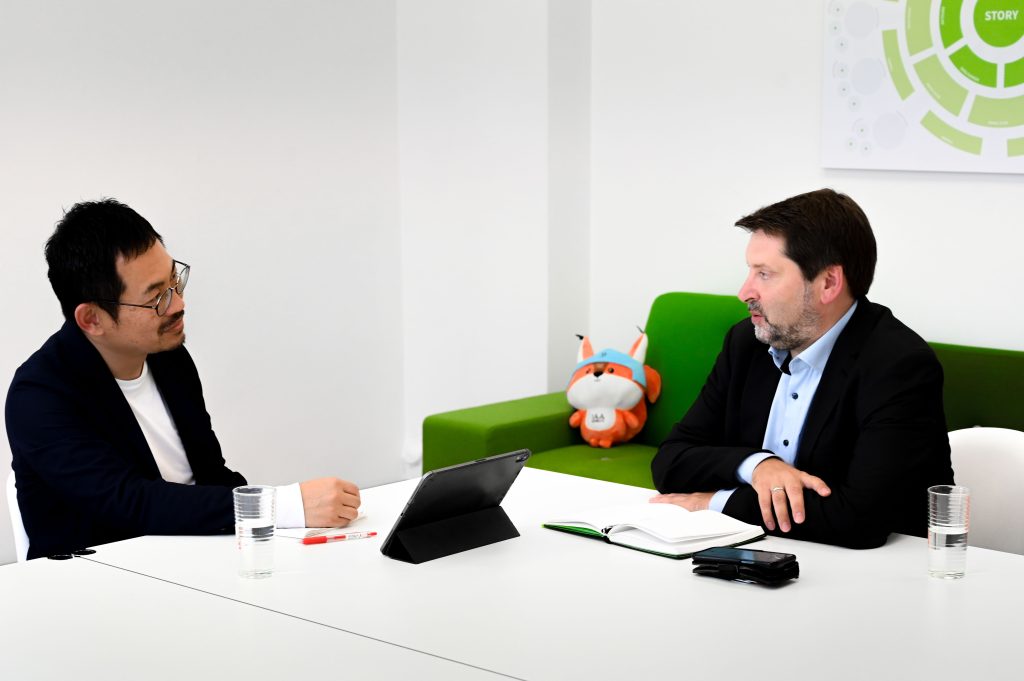
Eiki Hayashi: Working with both German and Japanese companies, what, in your eyes, is the biggest difference between them?
Bjoern Eichstaedt: In my experience, Germans want to be efficient. That also means spending relatively little effort to reach a certain goal. And because efficiency is so highly valued, it is also considered a matter of respect to be concise and efficient in the way you make your point or communicate – to not waste the other person’s time. The Japanese, on the other hand, want to be as holistic as possible. For them, it is essential to consider every single detail, to be thorough rather than efficient. This can lead to miscommunication. I’ve seen it happen many times when a Japanese and a German company set up a meeting. Both want to show how important this meeting is to them. For the Japanese side, this means that they send ten people, covering every possible aspect that could come up. For the Germans, this means in extreme cases sending only one person: the boss. To them, this shows that the matter is important to management and that they have sent someone who is authorised to make decisions. Good intentions on both sides, but certainly a less than ideal situation for a meeting.
Another area where this manifests strongly is decision-making. For a German company, the ideal would be to make a decision fast – efficiency again – and then make adjustments along the way where necessary. Japanese companies usually take a lot longer to make a decision, because they want to consider every aspect beforehand. Once the projects starts, everyone is 100 percent clear and on the same page about what is going to happen. From a German point of view, it often seems like Japanese companies are working very slowly and are wasting precious time. It took me a while to realise that it’s actually just a different way of approaching a project. And while it might take longer to get started, things often run smoother along the way. Over time, I’ve really come to value this working style.
The same is true when it comes to innovation, for example. In Japan, there is a lot of discussion about needing to adopt the disruption style innovation of the Silicon Valley. In my view, the Japanese go about innovation differently: Instead of building something new from the ground up, they are much more focussed on continuous improvement. While the Americans go for speed – think of slogans like ‘fail fast’ – Japanese innovators are very detail-oriented and only want to bring a product to market once they are completely happy with it. Germany usually falls somewhere in the middle of this dichotomy. Again, many people think of Japan as slow when it comes to innovation. But I don’t see it that way.
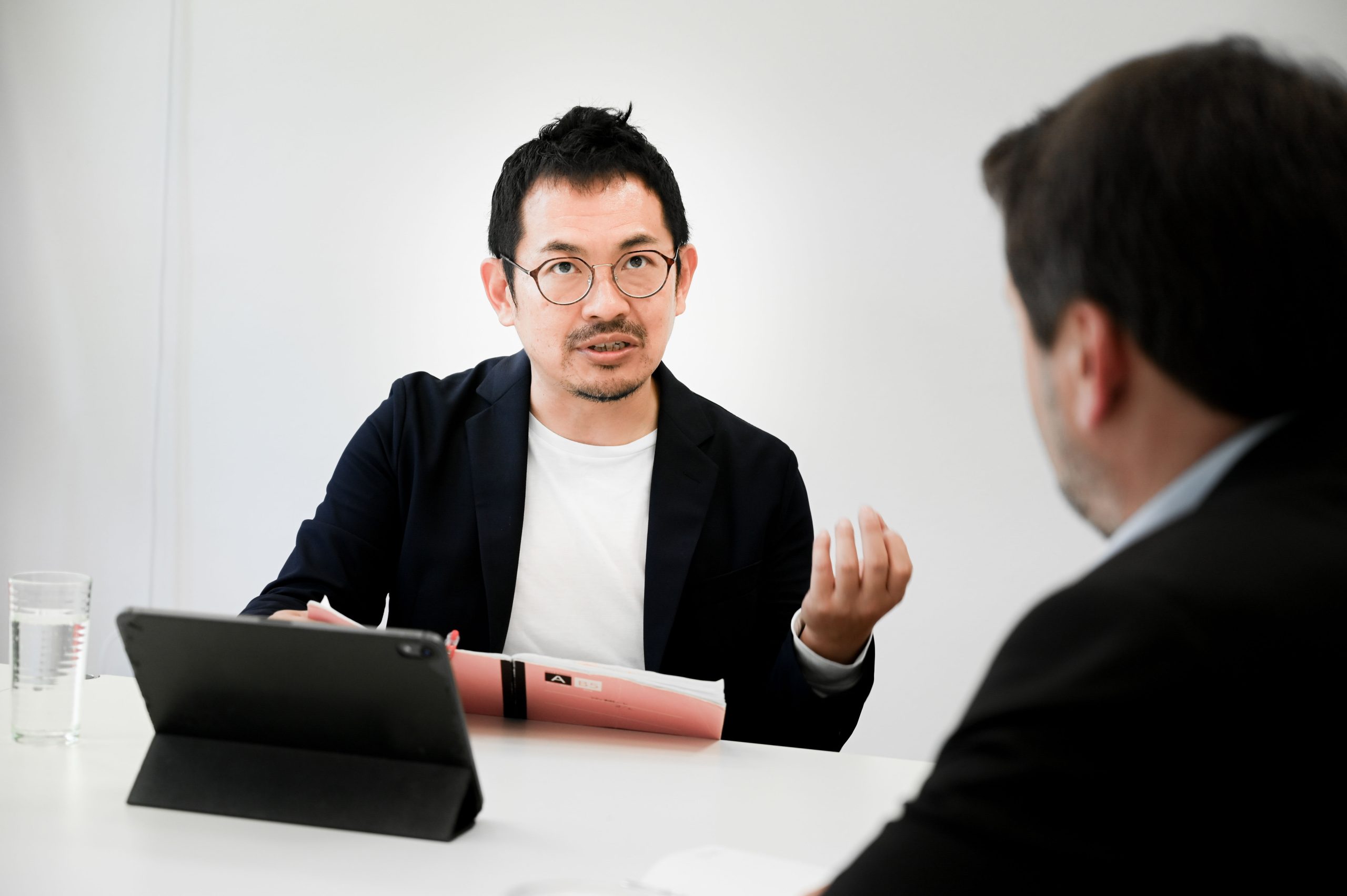
Eiki Hayashi: Do these differences influence communication in both countries?
Bjoern Eichstaedt: Absolutely, both internally and externally. The Japanese approach towards product launches, for example, works well domestically, because people trust the quality of Japanese products and don’t care so much about the time frame. They care that a product works perfectly once they purchase it. But outside of Japan, many markets are much more trend-driven. And sometimes, a trend might already be on its way out when a Japanese product is released. The perfectionism of Japanese companies can put them at a disadvantage here. This perceived slowness can also become a problem in traditional PR: We hear from journalists that try to contact Japanese companies but are expecting to get a statement or an interview with someone in top management within a few days. This is the standard for how journalists operate in German media, but a near impossible request to fulfil for Japanese companies. As a consequence, they miss out on valuable communication opportunities.
Another thing I noticed is that sometimes, the same words express different expectations and meanings, which can be a big cause for miscommunication. Take ‘quality’, for example, or ‘punctuality’. In Germany, a Deutsche Bahn train is considered on time as long as it is no more than five minutes late – it will never show up in any statistic on delays. This loose interpretation of ‘punctual’ would never fly in Japan. A five-minute delay would be cause for a national press conference! So the same word is used, but what that word implies is very different.
The same thing happens time and time again when German companies first get in contact with Japanese companies. Imagine a German company that needs a very specific automation solution and wants to contact different companies about whether they can help. They ask an American company, who very quickly reply saying that you can do everything with their product, no problem. When they talk to German companies, the reply might be: “We need to quickly check and get back to you.” They would likely get a response within the week. But the Japanese company says: “Can you please send us your product and an explanation of your production line? We will check it in our laboratory.” Half a year later, they get back to the German company with a detailed analysis of how the solution could be achieved. But at this point, the German company felt sure that they would not hear back from them and decided to go with someone else. And besides, the original person of contact no longer works for the German company, so there is no established contact anymore. This is something that happens again and again. The whole communication culture is just very different.
Eiki Hayashi: In your experience, do all these differences make it difficult for Germans to work with Japanese companies?
Bjoern Eichstaedt: Not necessarily, but it is important to be aware of these differences in order to interpret and deal with them appropriately. When I first started working, I wasn’t convinced that all this talk about intercultural communication was really warranted. I didn’t think cultural trainings were necessary in a globalised world. But I have changed my mind on this. In fact, now I think it is absolutely essential to develop an understanding for Japanese business culture if you want to work with Japanese companies. Otherwise everything from the budgeting process to meeting culture will leave you flabbergasted or feeling like your counterparts are acting strange and irrationally – when in fact they are just approaching many things from a different perspective. Understanding is crucial for a respectful working relationship.
On the flipside, people who are willing to immerse themselves into the Japanese corporate culture often stick with it. I don’t think it’s a coincidence that many of our J-BIG interviewees report an unusually high employee retention rate at their companies. It is not unusual to have German employees working at Japanese companies for 25 years or more. In a German company, five years might already be considered a long time.
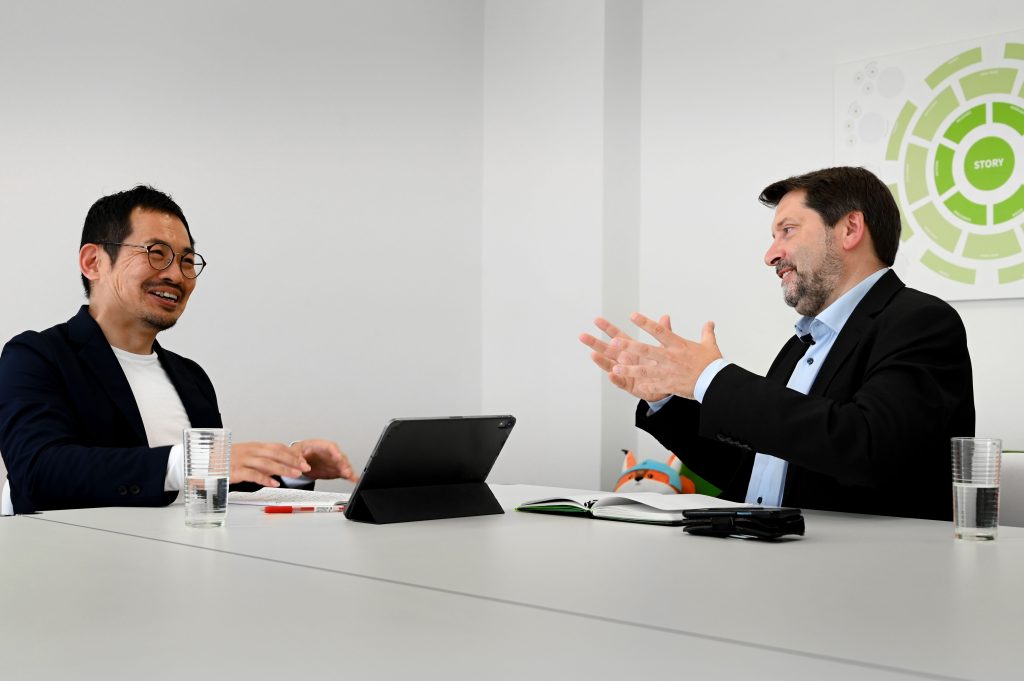
Eiki Hayashi: Let’ switch focus a little bit and talk about J-BIG, which is published by Storymaker. Why did you decide to publish this digital business magazine?
Bjoern Eichstaedt: There are several reasons why we decided to start J-BIG. The idea first occurred to me in the spring of 2020, during the first COVID lockdown in Germany. A lot of our customers had temporarily stopped projects together. I was sitting at home in my office, looking out the window and watching the same squirrel climb a tree before our house every day. Frankly, I was a bored. And, for the first time in a long time, I had some extra time on my hands. So I started thinking about our Japan business. We already had worked for a lot of Japanese companies, had permanent clients like NTT Data, Toray or Mazda. And we had managed to get many of our Japanese clients into business, daily, and industry media. But these articles were always connected to a certain topic or current events. It was very difficult to find a space where you could just introduce a company as a whole. To tell their entire story, so to speak.
I had also noticed that Japanese companies were reluctant to reply to interview requests or the like when I approached them through Storymaker as an agency – even when I wasn’t trying to win them as Storymaker clients, but to get input for an article I was writing. I regularly provided articles about Japanese tech and innovation for German industry or business media. In this capacity and at Storymaker, what I really wanted to do was to tell the stories of Japanese companies, but there wasn’t the right touchpoint to do so! And so I thought: “Why not create my own touchpoint? One where I can tell the story the way I think it deserves to be told?” Once I returned to the office in June of 2020, I discussed the idea with our Japan Desk employee Camilla Shiori Oura-Müller, and she had come up with a name shortly after: “J-BIG”, as in “Japan Business in Germany”. I really liked it, and so we went to the German patent office to get the name registered. In July 2020 J-BIG was officially born.
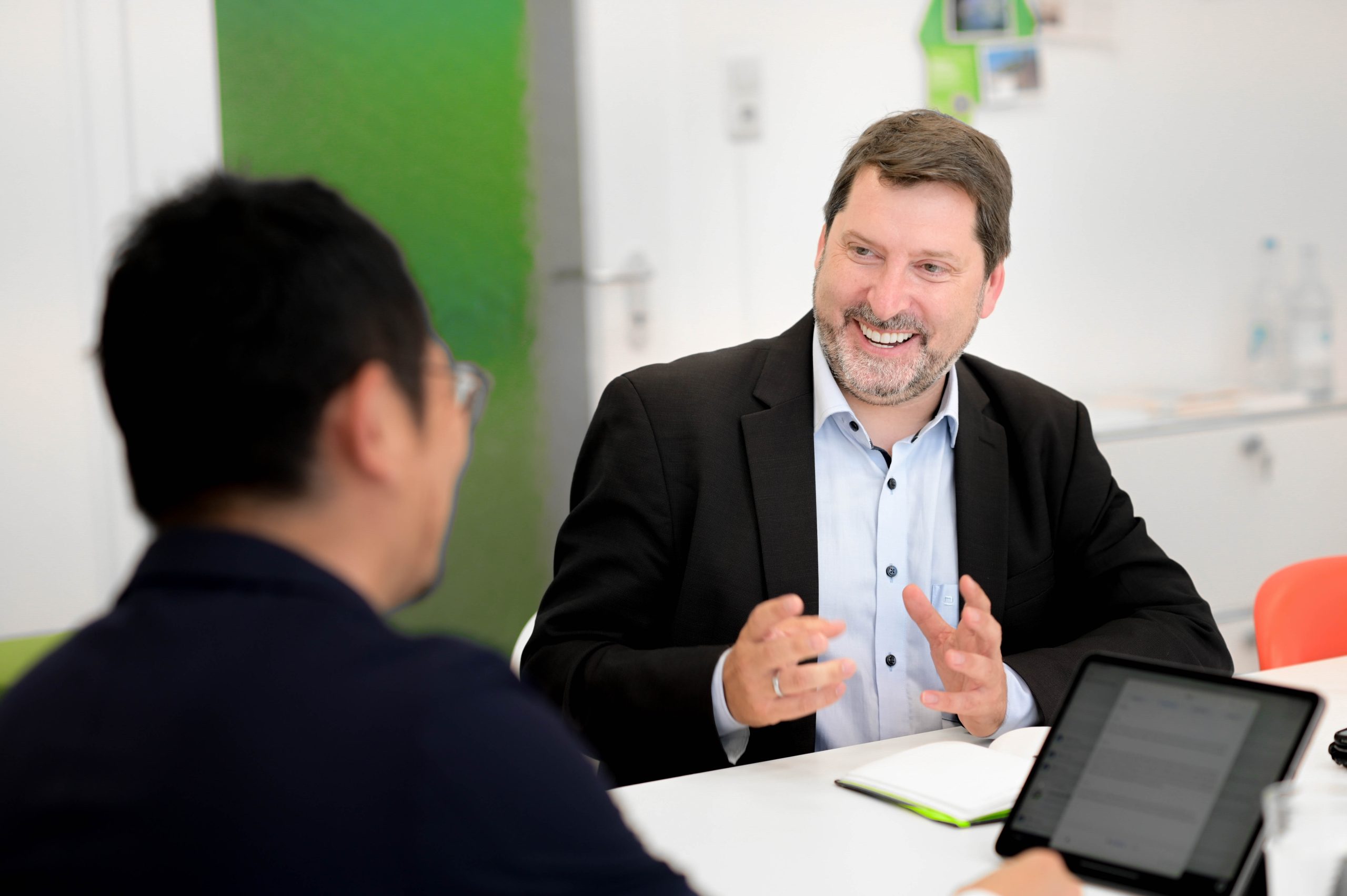
Eiki Hayashi: So you had a brand – how did you set about getting companies to work with J-BIG?
Bjoern Eichstaedt: At first, we just started talking to companies we already knew. We introduced our idea for a high-level business publication and said that we wanted to interview the person responsible for the Germany or Europe business. The concept was generally well received, but understandably many PR contacts were reluctant to approach management until at least a few issues had come out. So we were at a bit of an impasse: If nobody wanted to go first, J-BIG would never actually see the light of day. And it never would have if not for three people who really wanted to support this idea: Marketing and PR contacts at Panasonic Industry, Fujitsu and Mitsubishi Electric.
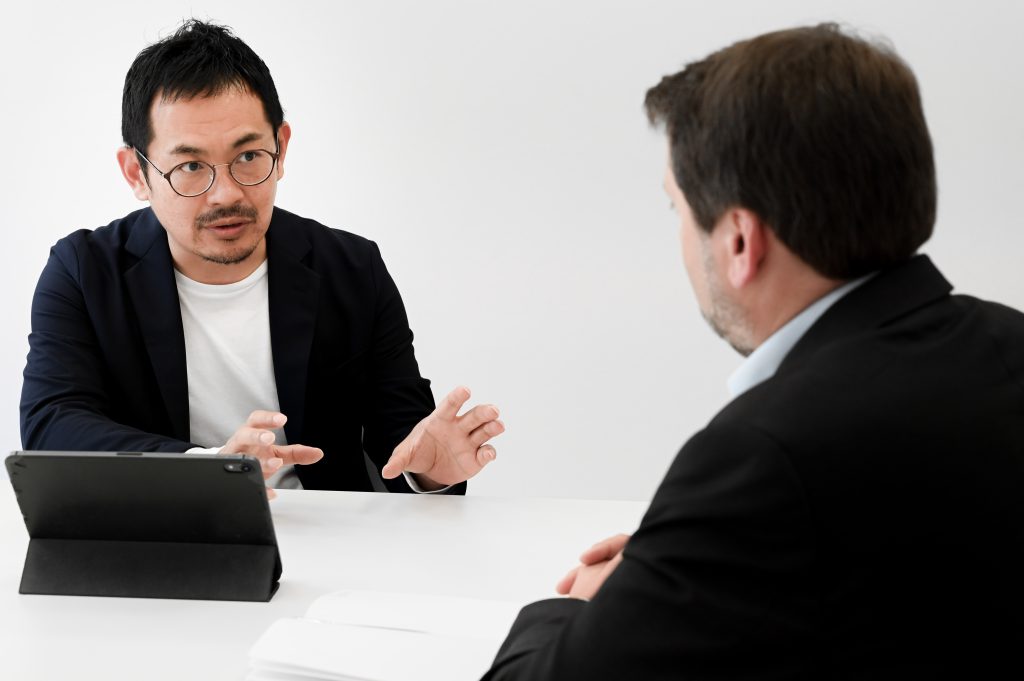
Eiki Hayashi: Were these companies your clients?
Bjoern Eichstaedt: Panasonic Industry had been doing projects with us here and there, and Mitsubishi Electric is now a permanent client. Fujitsu is not a Storymaker client, but I had good rapport with the former PR person there. I can honestly say: Without these three companies, there would be no J-BIG. The first issue featuring Panasonic Industry was published in November 2020, and this is now issue number 41!
Eiki Hayashi: You have talked to some very established Japanese companies, but also more unexpected ones. I specifically remember the interview you did with sex toy company Tenga – a topic you might not expect in a business magazine. How do you choose your interview partners today?
Bjoern Eichstaedt: The basic criteria are very simple: There needs to be a relation to Japan. There needs to be a business aspect. And some of that business needs to happen in Germany. That’s it. Beyond that, we try to add some variety and excitement to our stories. If we talk to the person responsible for the German business of the same kind of company every time, things can get repetitive. J-BIG was set up as a long-term project; we want to keep telling these stories for many years to come. In order to make sure that our readers still enjoy the magazine years down the road, we need to keep things fresh. And sometimes, doing something a little unexpected is just the way to achieve that.
In the case of Tenga, I saw their name on a door in Immermannstraße while wandering through Duesseldorf, and it rang a bell. I had heard about the company from a Japanese business contact who told me some time before that everyone knows this company, but it is not often talked about in the media. I got in contact with them – and while the President was interested, he was also sceptical if they were the right fit with all those ‘serious’ companies we usually talk to. He was worried that Tenga might shock our readers. So I asked: “Well, are you Japanese?” And he said yes. “Are you a company?” Again, of course the answer was yes. “And do you have business in Germany? Then you are the right fit for J-BIG”.
I want to look at business in a broader sense. One inspiration was the German business magazine Brand Eins, specifically a series they did called “Der Mensch”. Often, this was about an individual person as a business entity. I did some pieces for this series myself, for example about a barber in Kenya. The articles revolved around how ordinary people make a living in different countries of the world, what sort of costs or overhead they have, how the business model works. From this magazine, I learned that you can look at the business world in a very broad way. That was how I wanted to approach ‘Japan Business in Germany’ for J-BIG.
So far, we talked to a German manga publisher who told us about the manga licensing business. We did an interview with somebody who wrote his doctoral thesis about the history of Duesseldorf as a business location for Japanese companies, and to a Japanese yodeller who became very successful in Germany. None of those might be what comes to mind when you think of a ‘business person’, but they still constitute a business or deal with the topic of business – and an interesting one at that. Of course, when we interview a professional yodeller, we don’t talk about his biggest hits. We are not a music magazine. We talk about their career: how they generate income, the employment contracts, these kind of things.
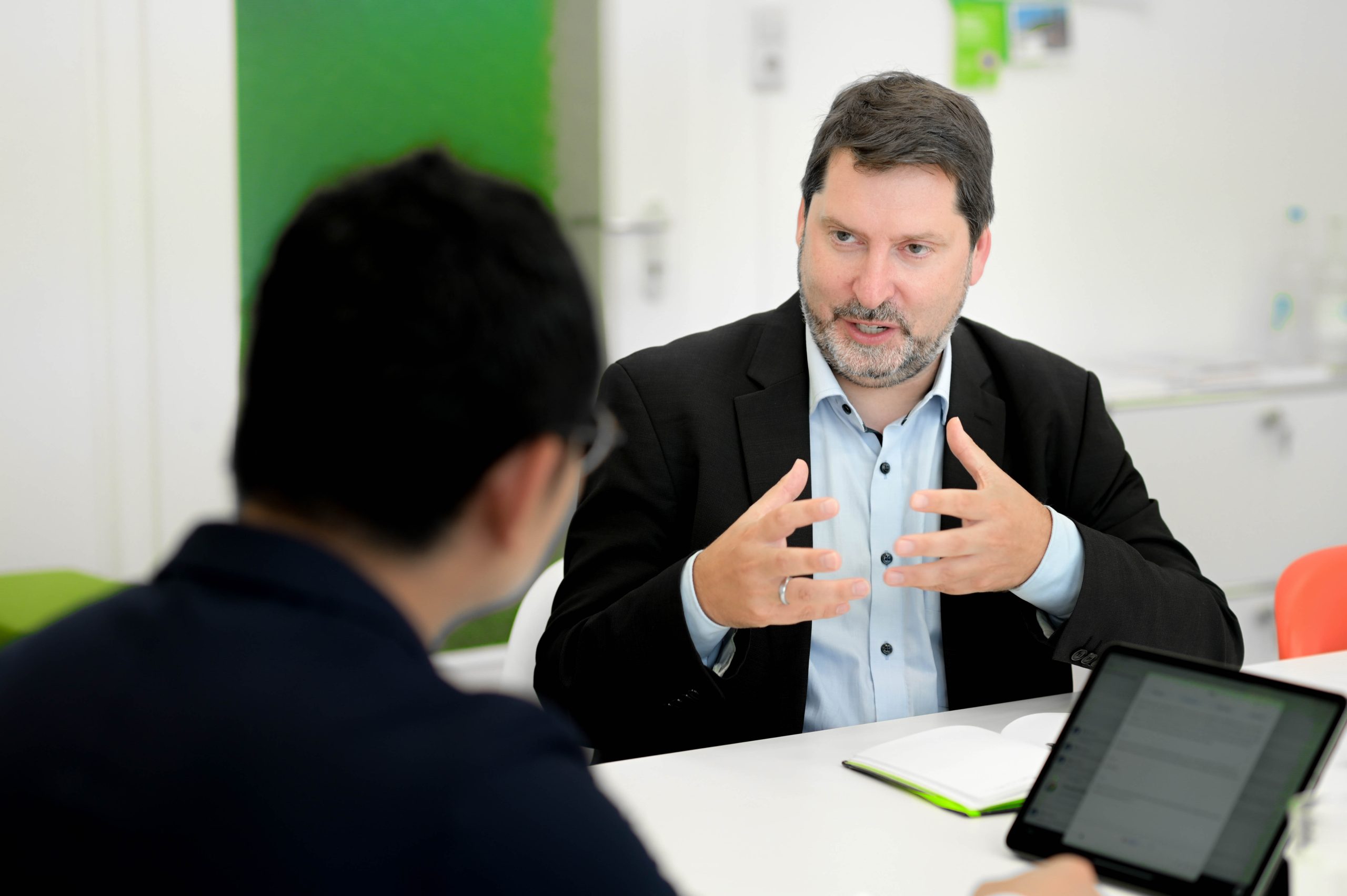

Eiki Hayashi: How have J-BIG readers taken to these more unusual topics?
Bjoern Eichstaedt: Doing something your audience doesn’t expect is always a risk. After all, they might not like it or feel like a topic is too far removed from their own business experience. But so far, we have not received any backlash for these issues. Although I have to say, there was one interesting development with the Tenga issue. We often do a raffle where readers can a product from the company we interviewed – in this case a Tenga robot. Although we did receive positive feedback for the interview, not a single person send an email to get the give-away. I think that many people enjoyed reading the issue, but they didn’t want to go on record saying that they were interested in a sex toy company.
Eiki Hayashi: How does J-BIG integrate into Storymaker’s Japan business? And how do you see it developing in the future?
Bjoern Eichstaedt: J-BIG emerged during a stressful time, where ‘business as usual’ was not really possible. Now that Storymaker’s regular business has picked up again, we see that J-BIG has changed our visibility. And while we treat Storymaker and J-BIG as completely different activities, of course we got many new contacts through the magazine. At the same time, Storymaker is very active in communities like DJW or the DJG Bayern, which helps our work with J-BIG.
I feel like at the moment, a lot of our work will be focussed on helping to create new connections and building up communities. This has really suffered during the COVID years, and some of these networks need to be rebuilt almost from the ground up. At the same time, many markets are undergoing wide-sweeping transformations, for example with the emergence of A.I. and other new technologies. I see many opportunities in this. Germans have a tendency to be wary of change. But when new things are happening, that always means that new connections are being made, and new forms of communication need to be created.
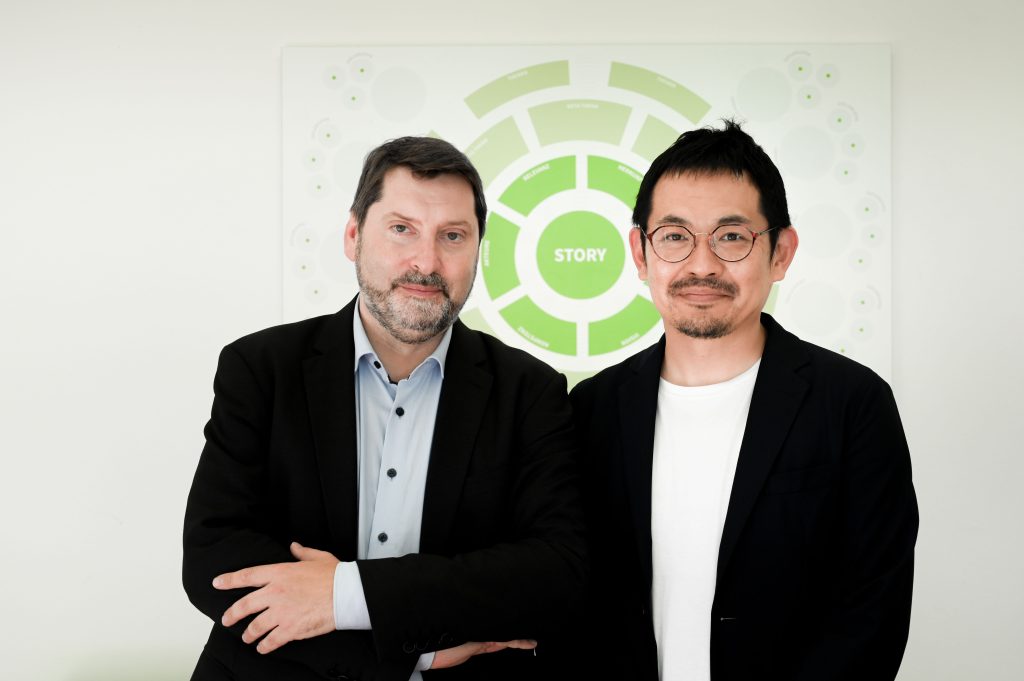
Eiki Hayashi: As you mentioned, Japanese companies are not very used to changing quickly. Are you worried that they will be unable to adapt to these sweeping transformations?
Bjoern Eichstaedt: My experience so far has been that most Japanese companies are always able to adapt. They just do it in their own, sometimes slower, way. But at least the bigger Japanese companies can afford to go at their own pace, because they have the necessary capital. Japanese companies are among the richest companies in the world when it comes to the money that they have in the bank. This also stems from the fact that Japanese companies are often very conservative with their money. Even if they have a very profitable year, they will not give out excessive bonuses but reinvest the earnings. So even if it takes longer for them to transform, they will not be bankrupt next year. This solid financial background gives them time to find the right solutions.
I also think that current transformations will play into Japanese companies’ hands. Many of the attributes that, up to now, were sometimes more of a hindrance can become an asset: the slower pace associated with long-term thinking, looking at issues holistically, emphasising quality over being the first. Given the current environmental situation, many customers are craving more stable products that will last them a long time, and that is something that Japanese companies have always excelled in. In general, communication around sustainability is an area where I see big chances, both for Japanese companies and for Storymaker. Many Japanese clients approach us because they feel like they need to think more about sustainably for the European market. But it often turns out that they have been acting very sustainably for a long time – they just never talked about it in those terms because, to them, this is just how they have always done it.
At the same time, the shortage of skilled workers especially in developed countries will heighten the need for automation – another field where Japan is very strong. So I think there’s a lot of potential for Japanese companies. And that also means there’s a lot of potential for us to work with them. To help them communicate, make new connections, to tell their story to others. So I have a very positive perspective on the future of our Japan business and the future of the Japanese business world as a whole.



